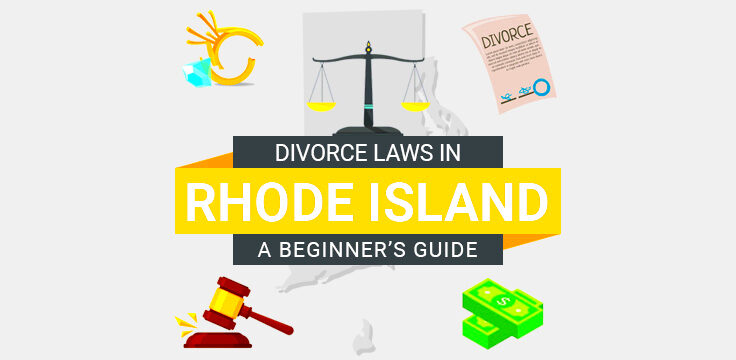Rhode Island Family Law Explained
Family law in Rhode Island covers a range of issues that affect families and children. It encompasses topics like divorce, child custody, and adoption. Understanding these laws is crucial for anyone going through a family-related legal matter. Rhode Island aims to ensure that family disputes are resolved fairly and with the best interests of children in mind. This post will guide you through key aspects of Rhode Island family law.
Understanding Divorce Laws in Rhode Island

Divorce laws in Rhode Island are designed to address the end of a marriage and the subsequent legal and financial issues that arise. Here are some key points to consider:
- No-Fault Divorce: Rhode Island allows no-fault divorces, meaning you don’t have to prove wrongdoing. You can simply state irreconcilable differences.
- Grounds for Divorce: If you prefer, you can file based on specific grounds such as adultery, abandonment, or cruelty.
- Residency Requirements: At least one spouse must have lived in Rhode Island for at least one year before filing for divorce.
- Process: The process includes filing a complaint, serving papers, and attending court hearings. Mediation may also be recommended.
In Rhode Island, the average time to finalize a divorce can vary, depending on factors like the complexity of the case and court schedules. However, the goal is always to reach a fair and equitable resolution.
Child Custody and Support Guidelines

When it comes to children, Rhode Island law prioritizes their well-being in custody and support matters. Understanding the guidelines can help parents navigate these challenging situations:
- Types of Custody: There are two main types of custody: legal custody, which involves decision-making authority, and physical custody, which determines where the child lives.
- Joint vs. Sole Custody: Courts often favor joint custody, allowing both parents to have a say in major decisions. Sole custody may be awarded in specific circumstances.
- Child Support: Both parents are typically responsible for supporting their children financially. Rhode Island uses a formula to determine support amounts based on income and the number of children.
- Modifications: If circumstances change, such as a job loss or change in custody, either parent can request a modification to the support agreement.
By focusing on the best interests of the child, Rhode Island’s custody and support guidelines aim to provide stability and support for families.
Property Division in Rhode Island Divorce Cases
Property division during a divorce can be one of the most contentious issues couples face. Rhode Island follows the principle of “equitable distribution,” which means that property is divided fairly but not necessarily equally. Understanding how this works is crucial for both spouses:
- Marital vs. Separate Property: Marital property includes assets acquired during the marriage, while separate property is what you owned before the marriage or received as a gift or inheritance.
- Factors Considered: The court considers various factors, such as the length of the marriage, each spouse’s financial situation, and contributions to the household, both monetary and non-monetary.
- Common Assets: Common marital assets include homes, cars, bank accounts, retirement accounts, and debts. The court will assess each asset’s value during division.
- Negotiation and Mediation: Many couples opt to negotiate property division outside of court. Mediation can help facilitate discussions and reach a mutual agreement.
Ultimately, the goal is to reach a fair division that reflects both parties’ contributions and needs. Being informed about these processes can help you navigate this challenging time.
Alimony and Spousal Support Considerations
Alimony, also known as spousal support, can play a significant role in divorce proceedings. In Rhode Island, the court has the discretion to award alimony based on various factors. Here’s what you need to know:
- Types of Alimony: There are several types of alimony in Rhode Island:
- Temporary Alimony: Provided during the divorce process.
- Rehabilitative Alimony: Aimed at helping a spouse gain education or training for self-sufficiency.
- Permanent Alimony: Awarded when one spouse cannot support themselves after the divorce, usually in longer marriages.
- Factors Affecting Alimony: The court considers several factors, including:
- The length of the marriage
- Each spouse’s financial situation
- The standard of living during the marriage
- The age and health of both spouses
- Modification of Alimony: Alimony can be modified if there’s a significant change in circumstances, such as job loss or a change in income.
Understanding these considerations can help you prepare for discussions about alimony during your divorce.
Domestic Violence and Protective Orders
Domestic violence is a serious issue that affects many families. Rhode Island has laws in place to protect victims and provide necessary support. If you find yourself in a situation involving domestic violence, here are some key points:
- Definition of Domestic Violence: This can include physical harm, threats, emotional abuse, or harassment. It affects individuals regardless of gender or age.
- Protective Orders: Victims can seek a protective order from the court, which may include:
- Restraining the abuser from contacting the victim
- Granting temporary custody of children
- Allowing the victim to stay in the family home
- How to Obtain a Protective Order: You can file for a protective order at your local court. It’s advisable to document any incidents of violence and seek legal assistance if possible.
- Resources Available: Rhode Island offers various resources for victims, including hotlines and shelters. Connecting with local organizations can provide support and guidance.
Addressing domestic violence requires immediate action, and understanding your rights can empower you to seek help.
Adoption Process in Rhode Island
Adopting a child is a life-changing decision that brings joy and fulfillment. In Rhode Island, the adoption process is designed to ensure the best interests of the child while also supporting the adoptive parents. Here’s a breakdown of the steps involved:
- Types of Adoption: Rhode Island recognizes several types of adoption, including:
- Agency Adoption: Involves an adoption agency that helps match children with prospective parents.
- Private Adoption: Arranged directly between the birth parents and adoptive parents.
- Stepparent Adoption: A stepparent may adopt their spouse’s child.
- Home Study: Before adoption, a home study is required. This process assesses your home environment, background, and ability to care for a child. A licensed social worker typically conducts this study.
- Application and Fees: You’ll need to submit an adoption application, which may include fees. These fees can vary based on the type of adoption and the agency involved.
- Legal Proceedings: After completing the necessary steps, a court hearing will finalize the adoption. During this hearing, a judge will review the case and grant the adoption if everything is in order.
Adoption can be complex, but it ultimately leads to creating a loving family. Support from professionals and other adoptive families can help you navigate this journey.
Frequently Asked Questions about Family Law
Family law can raise many questions for those navigating its complexities. Here are some frequently asked questions to help clarify common concerns:
- What is the difference between legal custody and physical custody?Legal custody involves making major decisions about a child’s upbringing, while physical custody refers to where the child lives.
- How is child support calculated in Rhode Island?Child support calculations consider both parents’ incomes, the number of children, and the amount of time each parent spends with the children. Rhode Island uses a formula to determine the support amount.
- Can I modify my child support or alimony agreement?Yes, if there is a significant change in circumstances, such as job loss or a change in income, you can petition the court for a modification.
- What should I do if I experience domestic violence?If you are a victim of domestic violence, seek immediate help by contacting local authorities, a trusted friend, or a domestic violence hotline. You can also file for a protective order.
It’s always a good idea to consult a family law attorney if you have specific questions or need assistance with your situation.
Conclusion on Rhode Island Family Law
Navigating family law issues can be challenging, but understanding the laws in Rhode Island can make a significant difference. Whether you’re dealing with divorce, child custody, adoption, or domestic violence, it’s crucial to know your rights and the resources available to you. Here are some key takeaways:
- Prioritize the Best Interests of Children: Rhode Island law focuses on ensuring children’s well-being in custody and support matters.
- Seek Professional Help: Consulting with a family law attorney can provide you with guidance tailored to your specific situation.
- Utilize Available Resources: Many organizations and services can support families facing legal issues.
Ultimately, knowledge is power. By staying informed about Rhode Island family law, you can make educated decisions that positively impact your family’s future.


